Danke Schoen
I saw the page regarding the off-campus programs (“A Snapshot of Colgate’s Off-Campus Study Programs,” winter 2022). I thought I could add a bit of history.
In 1967, I took advantage of the January studies program to spend six weeks in Vienna learning German and attending a lot of operas. I came back from that experience wanting to know whether I could get more of such opportunities by spending a junior year abroad in Germany. However, at the time, there was no study program in Germany as there is, thankfully, today.
I had to search for another opportunity through a consortia in the form of the Institute of European Studies in Chicago, through which I was able to make my dream of a junior year (1967–68) in Germany possible. It landed me in Freiburg in Breisgau. It was a helluva year — 1968 and all that — on both sides of the Atlantic, and it was a fascinating time to be looking at it from Germany.
Lo and behold, decades later, Freiburg is where the Colgate German program was founded and is today. Over the past years, I have occasionally been invited by the German department (Professor Claire Baldwin) to return to Colgate and meet with students. It always makes me feel good that I was able to lay a trail down for others to eventually follow as I wound up spending my entire career in various ways focused on Germany and German-American relations. In that connection, I was asked to contribute to the 50th anniversary program with a lecture on that subject.
So one could say that the Jan program was the catalyst, but I added the extra effort to find a way.
Glad it is now easier and expanded so thoroughly.
Jackson Janes ’69
Supporting Film Students
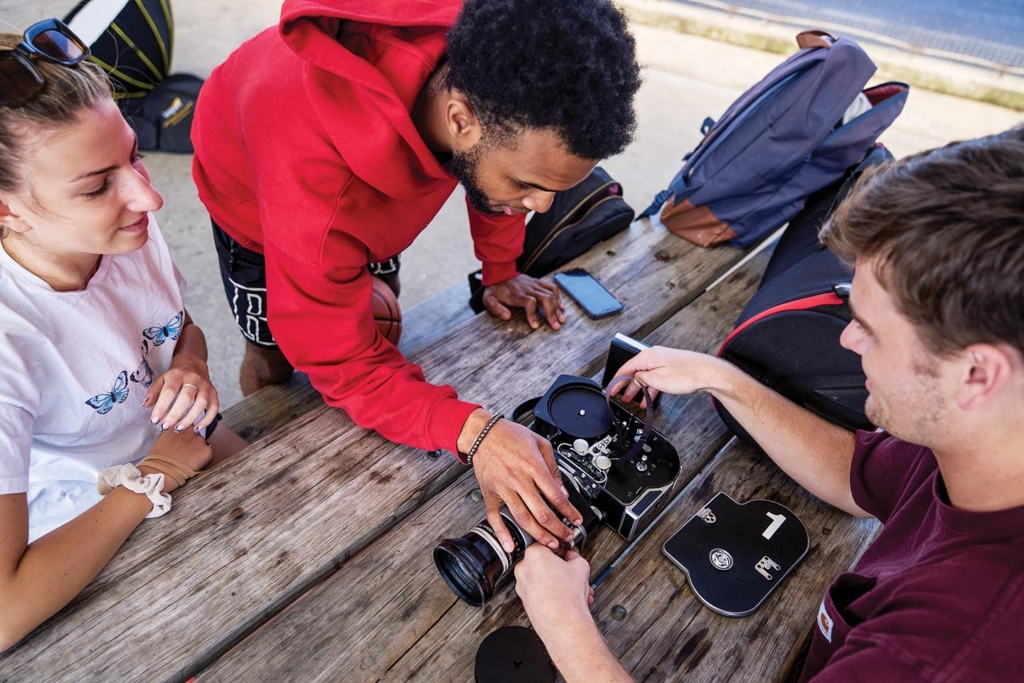
Great to learn about Jeff’s [Sharp ’89] successes (“Seven Things We Like About Jeffrey Sharp,” winter 2022) and his ongoing contributions that strengthen the Colgate experience. Cheers to Jeff!
Andrew Balmuth ’89
An Admirable Scientist
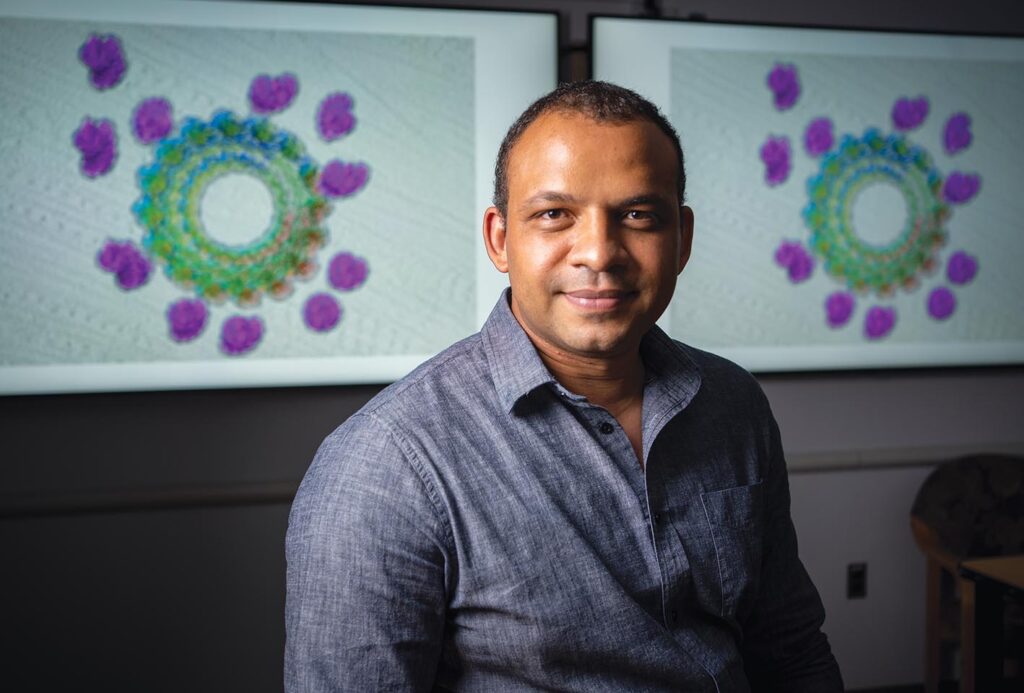
This is just wonderful (“The Bookworm and the Parasite,” winter 2022)! John Jimah [’08], you have accomplished so much and yet I remember you as the most humble one! You are making all of us Colgate international students look good. Congrats!
Gergana Mouteva ’09
John Jimah, I am so glad to hear your hard work continues to pay off. You will make a difference in your field as a mentor and help change lives around the world.
Lisa Henty ’08
Fondness for Farmers
I found “Serving Others,” (autumn 2021) very interesting as my father and father’s family were dairy farmers. I grew up in Hamilton, and the Snyder Family owned and operated Elm View Farm (started in 1925), which was located at 92 Lebanon Street (unfortunately, it is no longer there, as it is now Five Trees development, and where once was the pasture land, it now has houses). When it was operational, my father and his father were in charge of the 60 head of cattle — feeding/ milking the cows — and my father’s two brothers were in charge of the milk room and peddling the milk around Hamilton, Lebanon, Earlville, and Morrisville. At that time, there were a lot of dairy farms around the Hamilton area. After the farm was sold in the 1970s, my father went to work as general foreman for the grounds at Colgate University — and yes, he would call in his ground crew at 5 a.m. (He was still on dairy farmer time!) for work. My father died Dec. 2, 1983, at the age of 70.
It’s nice to see Dipesh Khati ’22 have a great interest in the Madison County dairy farmers and the challenges they are facing.
Elinor (Snyder) Caban, widow of Carlos E. Caban ’6
Squeezing the Orange
On “Colgate Crushes ’Cuse,” winter 2022: That headline and picture evoked memories of the last time Colgate beat Syracuse in basketball. The game was in Huntington Gym. Syracuse was on a long losing streak that eventually became, at that time, the longest for a major program (27). We had a good team, headed by Bob Duffy. Syracuse was terrible and had recruited Ernie Davis and John Mackey to play on the team. They were obviously very athletic but, to use a modern day phrase, they shot bricks. I don’t remember the score but, at the end of the game, we were happy to extend the Syracuse losing streak.
Tom Gamble ’64
Happy Meals
The Food Edition (autumn 2021) was one of the most enjoyable and interesting to read in some time. Among memories revived were late evening visits to the Coop and the “mystery meat” at freshman year Sunday dinners in the [Student] Union. Going to dinner at the Union in winter months was sometimes made a little more interesting by “sledding” down the path on a tray slipped under a coat after lunch. There were many benefits of fraternity life in my years, and one of them was definitely improved dining options.
Brad Tufts ’59
A Beef About the Food Issue
Although I enjoy the new format and diverse content of Colgate Magazine, I was disappointed twice by the Food Edition.
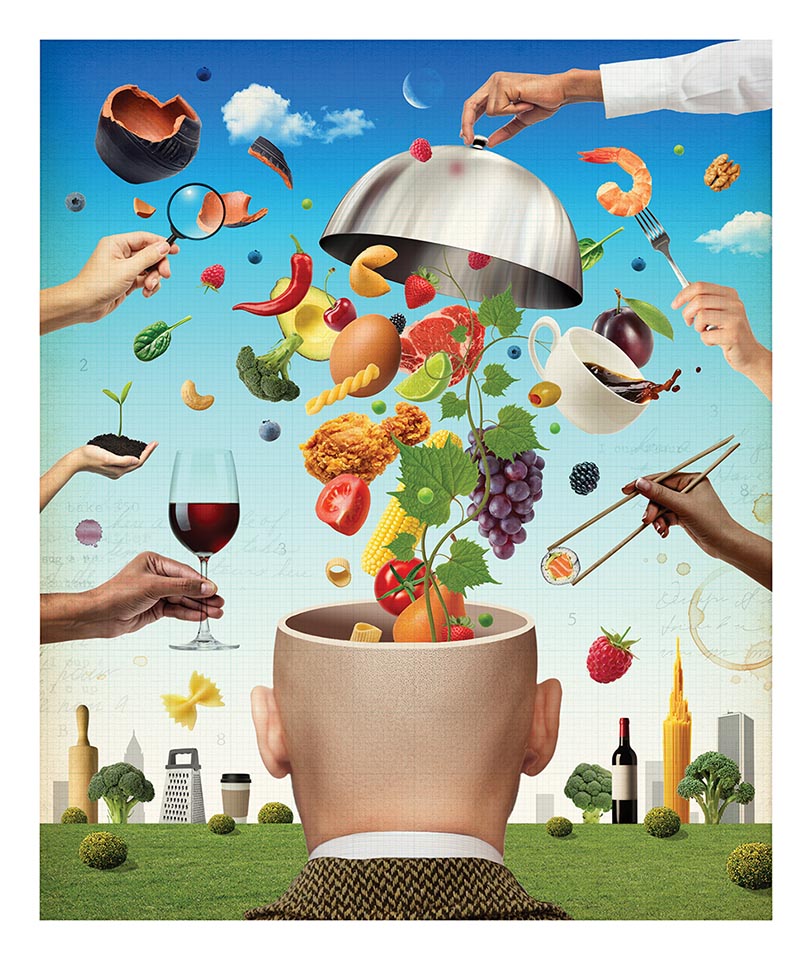
The first time was by “What Athletes Eat,” wherein two student athletes mention their steak-eating habits, which was awkwardly followed by “The Future of our Food,” in which Carrie Koplinka-Loehr ’80 states, “Eating beef is a huge driver for climate change.” I’m all for honest journalism, but this disjunct made for some uncomfortable reading. I propose that Colgate athletes be assigned Ms. Koplinka-Loehr’s book, Our Changing Menu, as required reading.
The second time was by “Food for Thought, What is Jewish Food?,” in which Professor [Lesleigh] Cushing, or the article’s author, writes that “the voice of Jewish food is becoming more masculine as celebrity chefs … pull the cuisine into a less domestic and more prestigious realm.” What could this mean other than masculine=prestigious, and feminine=less prestigious and, well, insignificant? Your readers, including prestigious and feminine Colgate former presidents, prestigious and feminine Colgate professors past and present, thousands of prestigious and feminine alumnae, and prestigious and feminine endowers of Colgate professorships might … to put it mildly, disagree with that.
Jann Elizabeth Vendetti ’01
Response from Professor Cushing:
Dear Ms. Vendetti,
Thank you for engaging so closely with the Food Edition and for registering the moments where you thought we fell short. As you can imagine, compressing a long interview into a short piece can sometimes lead to omissions or over- simplifications.
The Jewish cookbooks I am studying reflect many transformations: among them, a shift over time from food of necessity that uses ingredients available to Eastern European peasants living in harsher climates to a food culture that foregrounds the fresh produce more readily available in the Mediterranean, Middle Eastern, and North African climates that have always been home to Jews; a movement from Jewish food conceived as primarily domestic, focused on feeding a Jewish (historically, kosher-keeping) family, to Jewish food as global and of culinary interest to non- Jewish. [That goes] beyond the domestic sphere, with delis and appetizing shops and critically acclaimed restaurants offering Jewish fare. And, related, there’s an increase in the number of Jewish cookbooks written by men — many of whom are connected to the more “prestigious” restaurants.
As you note, the article’s brief distillation of some of the changing phenomena in the world of Jewish food comes across as suggesting a direct causality between masculinity and prestige. There is, dismayingly, a connection between these two. Food studies scholars often highlight the so- called “home/haute split”: a 2014 study showed that men hold 84% of the head chef positions in the top 15 restaurant groups; cooking shows typically situate female professional chefs in home kitchens, framing them as “domestic advisers rather than artists.” But I don’t mean at all to suggest that prestige can only be masculine and masculinity equals prestige. Questions of gender — particularly, who cooks and for whom (and where), how recipes are transmitted in families and beyond, who shapes the public narrative of Jewish food, and how gender intersects with a changing Jewish food landscape — are a central part of my research project.
Lesleigh Cushing, Murray W. and Mildred K. Finard Professor in Jewish studies
Bowling Bistro
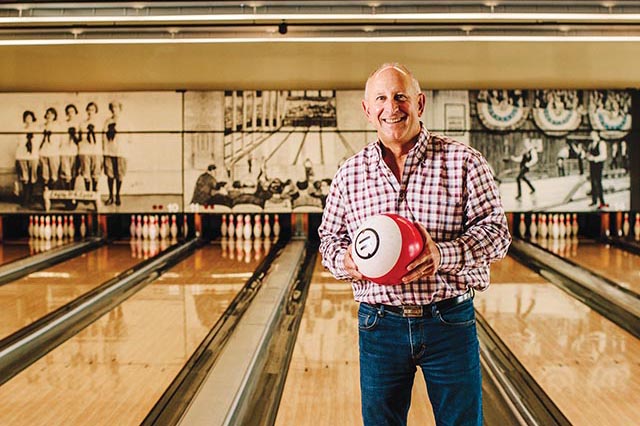
I didn’t realize Pinstripes was founded by a Colgate grad (Dale Schwartz ’83, “Kingpin,” autumn 2021). We’ve held so many birthday parties there, and I attended a wedding at the Georgetown/D.C. location last fall. I’m so happy, and I’ll keep supporting.
Yvonne K. Okoh ’99
Go, MOM
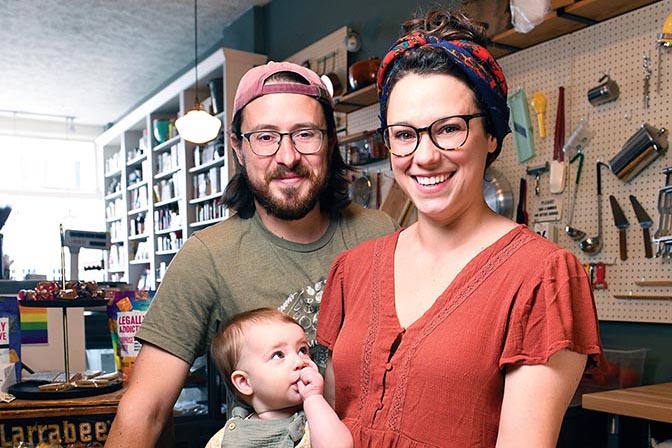
In response to “Simple and Sweet, autumn 2021: Oh my goodness, [Martha’s on Madison, a.k.a. MOM] sounds like something we would have really loved in the ’90s! Good luck, you two [Brendan ’09 and Britty Buonocore ’12 O’Connor]. Sounds great!
Sarah Barrett ’95
A Thank You for Professor Brackett
Dr. [Tom] Brackett’s article (“Colgate and the Machine,” summer 2021) on the beginnings of computer science at Colgate, brought some great memories that deserve credit. I found the IBM 1620 toward the end of my freshman year and was hooked. Fortran was the useful programming language and entry was from punch cards. I spent the summer of my freshman year programming the observations of a professor from the astronomy department. I had planned on majoring in economics, but I was hooked on computer science, and Dr. Brackett was assigned as my adviser. With Dr. Brackett’s encouragement, I helped transfer my new knowledge of Fortran to some of the other professors. The summer of my junior year, Dr. Brackett introduced me to the IBM branch office in Utica, where I spent the summer programming an IBM 1401 for a parts dealership in Plattsburgh, N.Y. Finally, my senior Jan Plan was a month working with Dr. John Kemeny at Dartmouth learning a language called BASIC, which Professors Kemeny and Thomas Kurtz had invented. Two days after graduating with the Class of 1968, I went to work as a programmer for the IBM Corporation in Poughkeepsie, N.Y. Dr. Brackett’s encouragement and his work with the National Science Foundation can be credited with my career in software: 11 years with IBM, six years with Satellite Business Systems, and 15 years with Miller Associates, a start-up I co-founded with my brother to produce a baseball game for the Windows environment, Baseball for Windows: Broadcast Blast with Ernie Harwell. His kind mention in “Colgate and the Machine” was a surprise. I can’t express enough my appreciation for his experience and teaching that made my years at Colgate so enjoyable and life influencing.
Roswell C. Miller ’68
